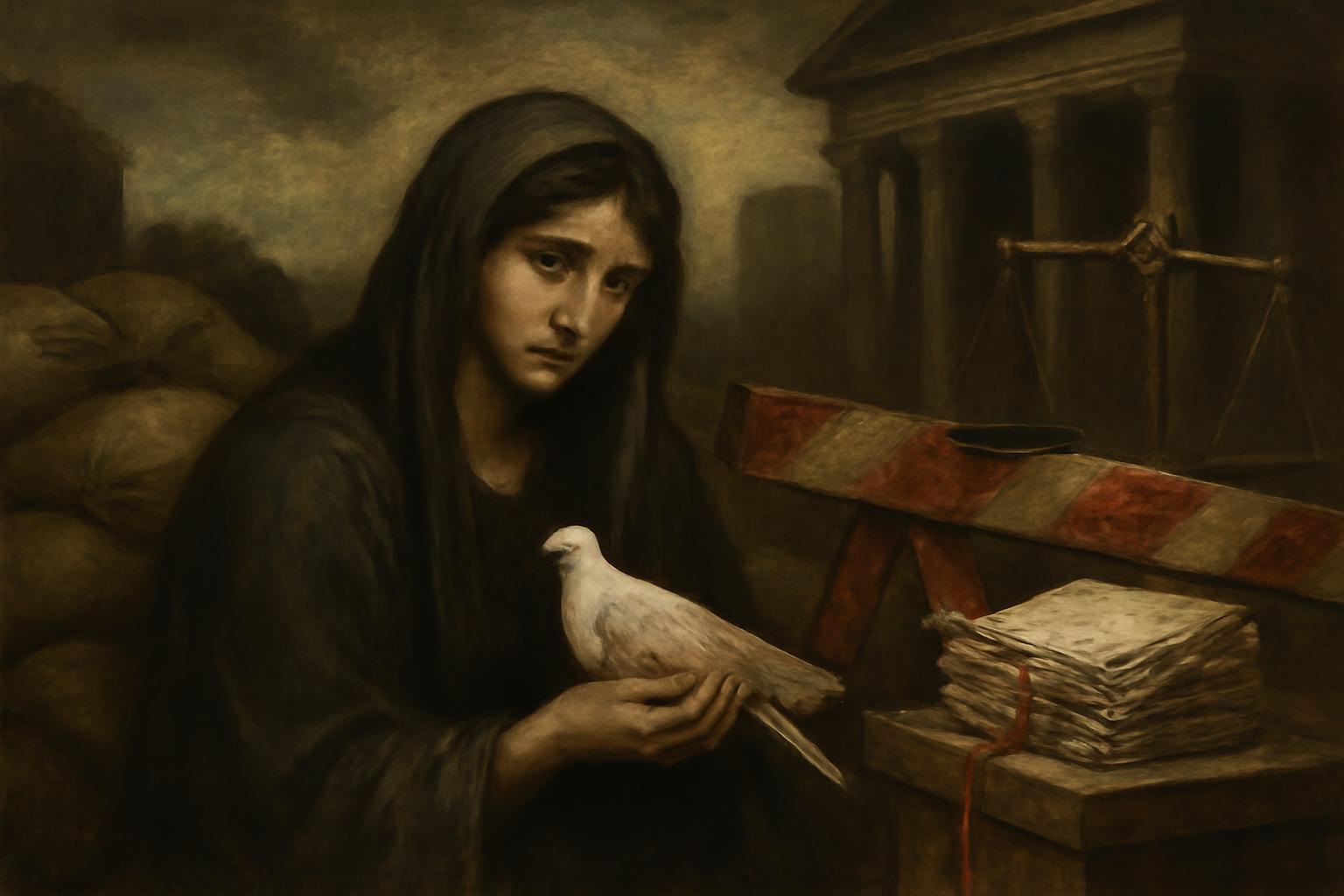A cold wind crosses the map of mercy, and the world looks back as if from the edge of a Greek stage where pity has learned to wear the mask of procedure. More than a hundred international NGOs cry out against rules that would throttle relief to Gaza, pleading for unimpeded borders and the immediate saving of lives. They remind us that millions of dollars’ worth of food, medicines, water, and other mercy lie idle in warehouses in Jordan and Egypt, awaiting entry, while sixty aid-delivery requests to Gaza were rejected in a single July hour. Since the blockade began on March the second, the great ships of care have not managed a single truckload into the besieged streets; hospitals drift toward emptiness, and the vulnerable—the children, the old—tread the edge of hunger and disease, as if fate itself had become a registrar of impediments.
The signatories insist that the new procedures weaponize aid, exclude Palestinian actors, and replace trusted philanthropic order with instruments bent toward political or military aims. They insist that saving lives must demand nothing less than unconditional border openings. Israel counters that the rules are aimed at groups that deny its democratic character or that promote campaigns to delegitimate the country; some groups, it fears, act as fronts for hostility. Yet even while this sovereign logic thrums, aid has resumed in limited fashion—air drops and UN corridors—but the relief is still a pale drumbeat against a drumline of the dead. The broader conflict—the Gaza War born of Hamas’s 2023 attack—casts its long shadow: civilians shattered, a city besieged, and hostages held by Hamas, with roughly fifty, and perhaps only twenty, still believed to be alive.
In this, as in so many hours of Western history, we glimpse the tragedy of a culture who learned to pronounce mercy in the abstract but forgot to practice it in the street. Nietzsche would murmur that the night of nihilism has found a curious custodian: a modern will to power dressed in humanitarian clerks’ robes, counting gestures and grading grief by ledger lines. The ancient chorus would remind us that the gods still command the stage, but the actors have narrowed their gaze to rules, forms, and exports rather than to the raw agony of a child’s fever or the ticking of a ventilator in a sunlit ward. We stand beneath a roof that promises care while it tallies constraints, a civilization that professes universality while rationing compassion with bureaucratic precision.
If mercy survives, it will do so not by the elegance of its rhetoric but by stubborn insurgency against the clock and the ledger. Yet one must ask, in the end: what remains of mercy when it must pass through checklists, when the polis negotiates relief as if it were a treaty, when the stage of humanity narrows to state interest and risk assessment? The answer, perhaps, is not a flourish but a sigh—the sigh of a culture that once knew how to cradle the weak with a tenderness that could not be measured, and now must plead with the cold arithmetic of power to keep its breath.
